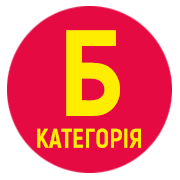INTELLECTUAL AND SPORTS GAMES AS A FORM OF SUPPORTING THE SELF-FULFILLMENT OF SCHOOLCHILDREN AND STUDENTS
DOI:
https://doi.org/10.32782/olimpspu/2024.1.10Keywords:
self-development, self-realization, game activity, personality formation, intellectual development.Abstract
The study of human self-awareness as an active topic is now becoming more and more relevant. More and more researchers are interested in the issue of self-perception in sports, especially in the context of high-level sports, as well as the professional self-perception of high-level athletes. The main priority of modern educational institutions is the development of personality and its creative side. There is no doubt that learning in any educational institution should not be limited to learning, mastering skills and acquiring specific knowledge needed in everyday life. The educational process should be aimed at personality development, the ability to self-educate, so that children strive for something new, interesting and unusual. On the one hand, self-realization means an essential (substantial) characteristic of a person’s self-awareness, on the other hand, it defines the appropriate technology for the realization of this essence, that is, it functions as an optimal and comprehensive way for oneself. Individual realization, which carries the intentions of the essence itself and technology, which unfolds it in the cultures of the present, past and future. The problem of self-awareness of the individual is an interdisciplinary problem with a philosophical origin, but only recently it acquired the status of a psychological problem. An equally important issue is consideration of physical culture and sports as the basis of personality formation. Sport appears as an athlete’s activity, during which his personality is formed. However, the impact of this activity can be both positive and negative. Therefore, by studying these patterns, we can promote positive changes and minimize the negative impact of sports on the formation of an athlete’s personality. Sports activity can also be studied from the point of view of the individual’s self-perception, objectively expressed by sports results, the level of which is a condition of subjective satisfaction. Self-awareness of an individual is the most complete definition of a person’s personal and professional abilities. Increasing attention to this issue is connected with the understanding of its decisive role in the development of the personality, the presentation of increased requirements for such human qualities as the ability to develop and complete.
References
Бех І.Д. Виховання особистості : підручник. Київ : Либідь, 2008. 848 с.
Войцях Т.В. Ігрові технології як інструмент профілактичної роботи спеціалістів психологічної служби закладів освіти : навчально-методичний посібник. Черкаси : Черкаський ОІПОПП, 2014. 92 с.
Гладченко О.І., Гуріна З.В. Психологічні особливості самоактуалізації підлітків з різним соціометричним статусом. Молодий вчений. 2016. № 12. С. 224–228.
Діяльнісна самореалізація особистості в освітньому просторі : монографія / Бучма В.В. та ін. ; за ред. С.Д. Максименка. Київ : Видавничий дім «Слово», 2017. 262 с.
Іваній І.В., Сергієнко В.М. Психологія фізичного виховання та спорту : навч.-метод. посібник. Суми : ФОП Цьома С. П., 2016. 204 с.
Корекційно-розвивальні технології навчання дітей з комплексними порушеннями розвитку : навч.-метод. посібник / Чеботарьова О.В. та ін. ; за наук. ред. О.В. Чеботарьової, О.І. Мякушко. Київ : ІСПП імені Миколи Ярмаченка НАПН України, 2020. 558 с.
Мельник В.В. Концепції взаємодії людини і суспільства в контексті соціокультурних засад: теоретико-методологічні виміри. Гілея: науковий вісник. Київ : Вид-во УАН ТОВ «НВП» «ВІР», 2012. № 65. С. 246–254.
Федусенко Ю. К. Особливості впливу навчально-ігрової діяльності на розвиток основних психічних процесів у молодшому шкільному віці. Рідна школа. 2018. № 4. С. 25–28.







